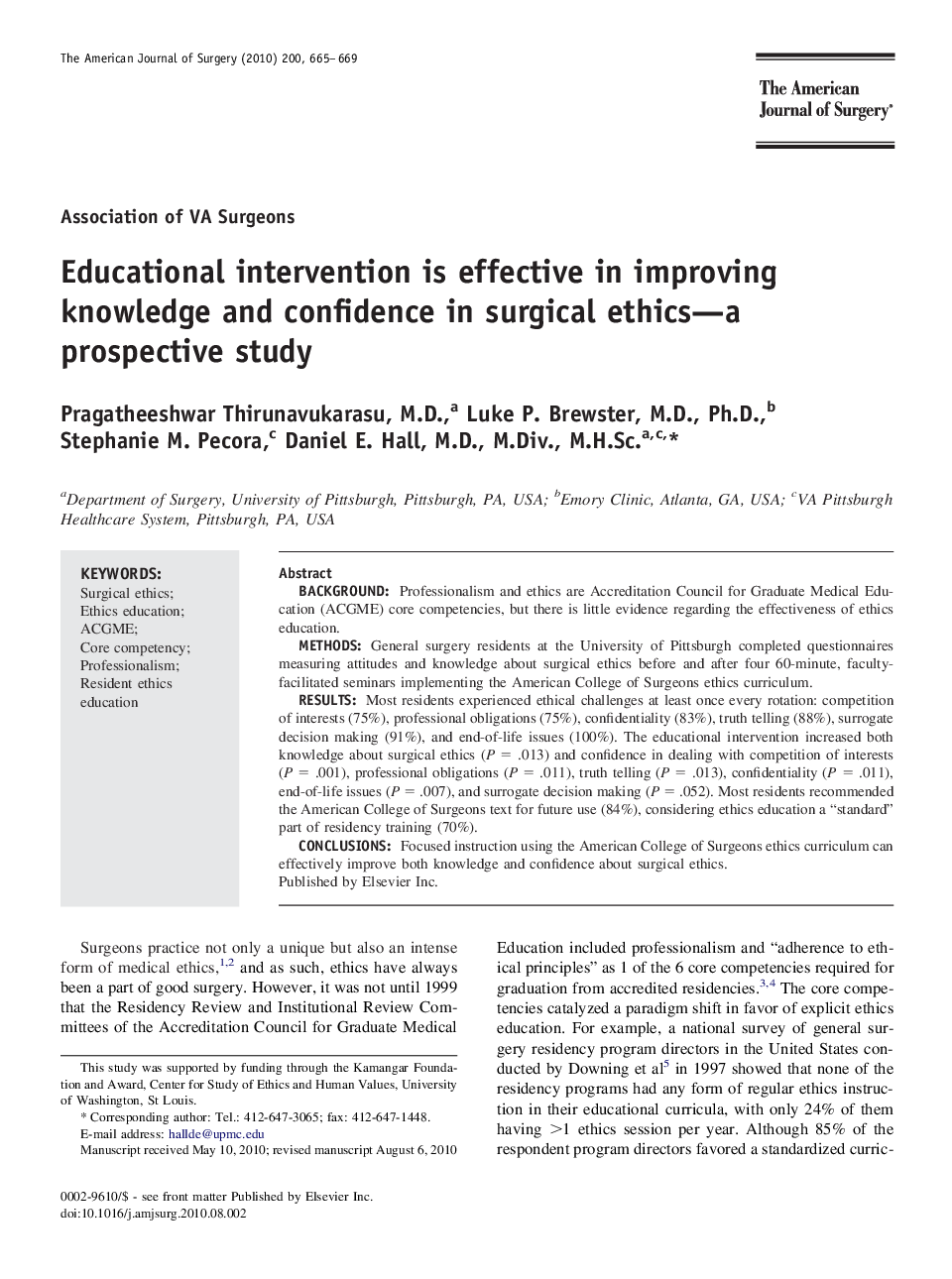| Article ID | Journal | Published Year | Pages | File Type |
|---|---|---|---|---|
| 4280160 | The American Journal of Surgery | 2010 | 5 Pages |
BackgroundProfessionalism and ethics are Accreditation Council for Graduate Medical Education (ACGME) core competencies, but there is little evidence regarding the effectiveness of ethics education.MethodsGeneral surgery residents at the University of Pittsburgh completed questionnaires measuring attitudes and knowledge about surgical ethics before and after four 60-minute, faculty-facilitated seminars implementing the American College of Surgeons ethics curriculum.ResultsMost residents experienced ethical challenges at least once every rotation: competition of interests (75%), professional obligations (75%), confidentiality (83%), truth telling (88%), surrogate decision making (91%), and end-of-life issues (100%). The educational intervention increased both knowledge about surgical ethics (P = .013) and confidence in dealing with competition of interests (P = .001), professional obligations (P = .011), truth telling (P = .013), confidentiality (P = .011), end-of-life issues (P = .007), and surrogate decision making (P = .052). Most residents recommended the American College of Surgeons text for future use (84%), considering ethics education a “standard” part of residency training (70%).ConclusionsFocused instruction using the American College of Surgeons ethics curriculum can effectively improve both knowledge and confidence about surgical ethics.
